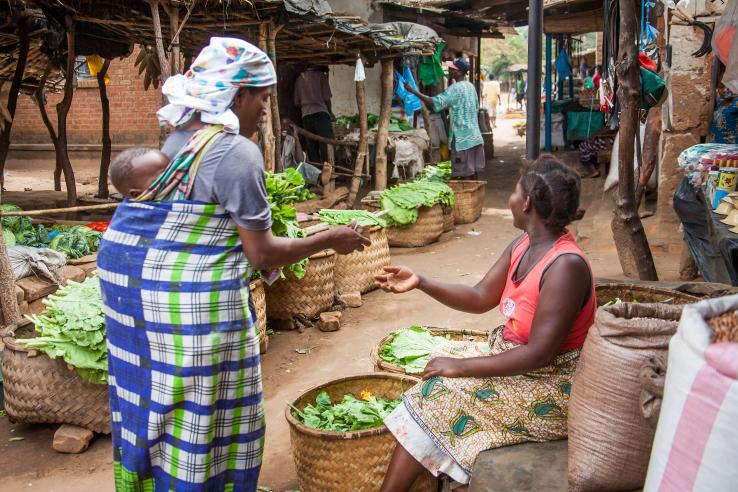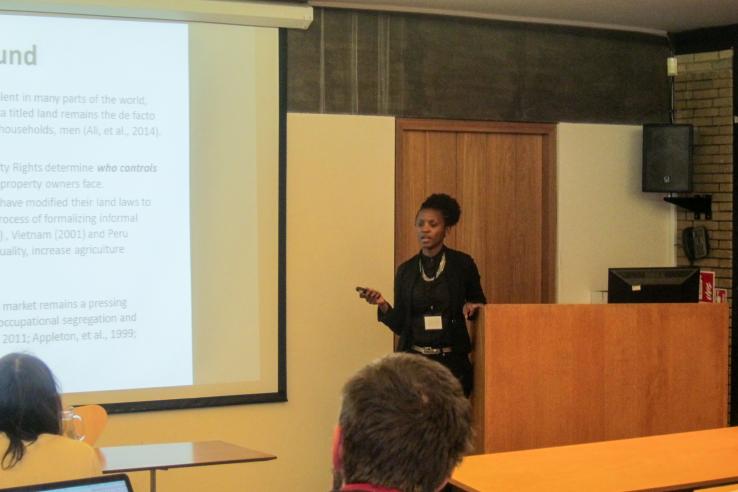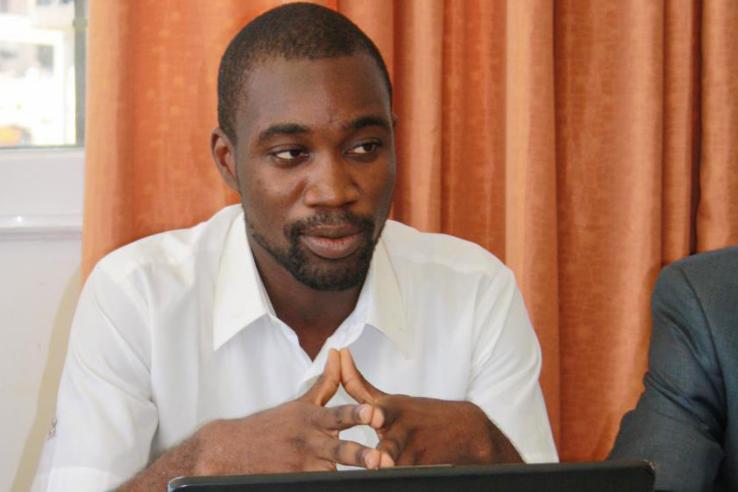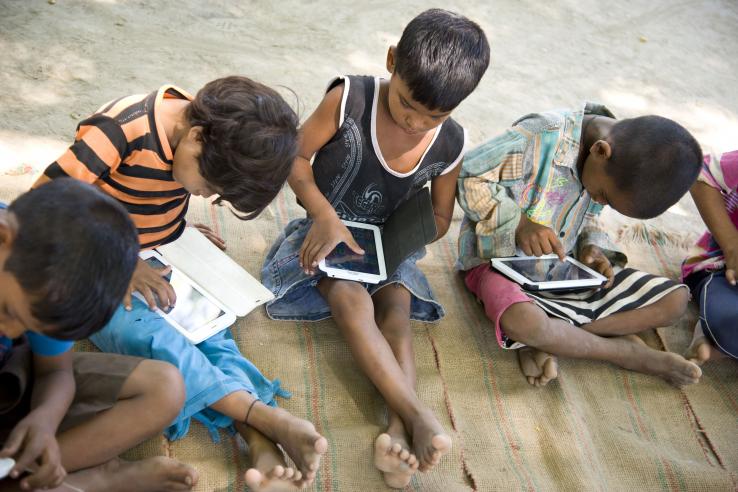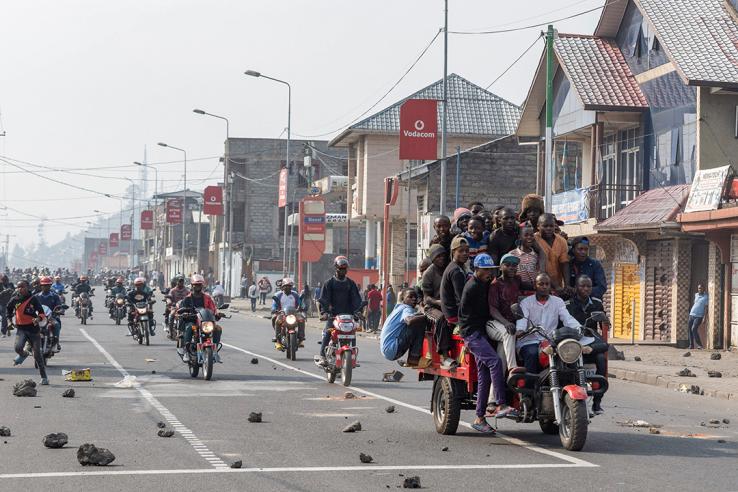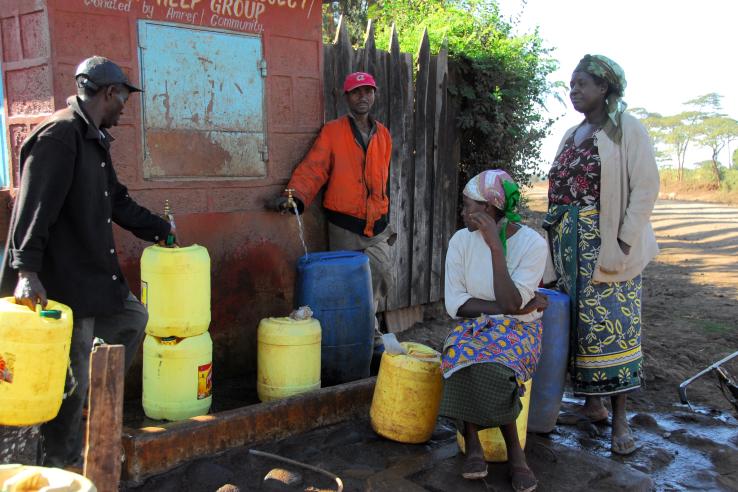Displaying 1486 - 1500 of 8322
Page
Landing page
Evaluation
In Liberia and Malawi, researchers partnered with Innovations for Poverty Action, GiveDirectly, and USAID to evaluate the impact of an unconditional cash transfer and market access program on food security, spending, income, resilience to health shocks, intimate partner violence, and psychological well-being. In both countries, households that received cash transfers experienced lasting increases in food security, psychological well-being, and resilience to health shocks.
Blog
J-PAL Digital Identification and Finance Initiative in Africa (DigiFI Africa) is honored to be one of the pillars of the G7 Partnership for Women’s Digital Financial Inclusion in Africa. Through DigiFI, J-PAL Africa will support gender-specific research to ensure digital innovations promote the...
Blog
Dr. Faith Masekesa joined J-PAL Africa as a postdoctoral research fellow to support our administrative data partnership with the City of Cape Town. Her research interests span development economics, econometrics, experimental and behavioral economics, social protection and social policy.
Blog
Dr. Kodjo Aflagah joined the J-PAL Teaching at the Right Level and Digital Identification and Finance Initiative teams, having just completed his PhD in economics at the University of Maryland. His fields of specialization include development economics and applied econometrics, with a particular...
Blog
Karthik Muralidharan is the Tata Chancellor’s Professor of Economics at the University of California, San Diego and also serves as a J-PAL Board member and co-chair of the Education sector. A pioneering researcher in education and service delivery, Karthik has profoundly influenced social service...
Person
Gerard van den Berg is an Honorary Professor at the University of Bristol. His research focuses on econometrics, labor economics, and health economics, particularly the effects of conditions early in life on health later in life.
Person
Achill joined J-PAL in August 2011 and is currently based in Patna, Bihar. He is working on a project to evaluate the health impact of supplying iron-fortified salt to markets in rural Bihar.
Person
Mauricio Romero is an Associate Professor of Economics at Instituto Tecnológico Autónomo de México (ITAM). Mauricio studies bottlenecks that impede high-quality government provision of education, health care, and environmental protection and has conducted research in Colombia, Tanzania, Kenya, and...
Evaluation
In Sub-Saharan Africa, wage job opportunities are limited, and a vast majority of young people are engaged in low-productive work. Many governments support formal apprenticeship programs to help youth find suitable employment, but there is limited evidence on the direct and indirect effects of these public interventions. Researchers partnered with the World Bank and the government of Cote d’Ivoire to evaluate the impact of a subsidized dual apprenticeship program targeting both youth and firms. The apprenticeship program increased participation among youth in formal apprenticeships, and participating firms hired more formal apprentices after the program was implemented.
Evaluation
By leveraging a unique, long-lasting relationship with an armed organization in eastern Democratic Republic of Congo, the researcher aims to better understand who joins armed organizations and why, as well as the effect of the participation motives on performance inside the group.
Evaluation
In Western Kenya, researchers compared three different approaches to subsidizing dilute chlorine solution to treat drinking water: a partial subsidy, a twelve month supply of free chlorine through monthly vouchers, and a twelve month supply of free chlorine hand-delivered. Safe water rates were much lower for households who had to co-pay for chlorine, but similar between households who received chlorine for free and households who had to redeem complimentary vouchers. This suggests that vouchers screened out households that would accept but not use the product under free immediate distribution, thereby keeping most of the benefits of free distribution while reducing wastage.
Evaluation
Researchers introduced a performance recognition system for employees to improve record keeping in clinics in Ekiti and Niger, Nigeria. They found that the performance recognition improved record keeping in Ekiti but not in Niger. Researchers suggested that important institutional, managerial and behavioral variables that were not measured may have played a key role in determining the viability and effectiveness of the intervention in each state.
